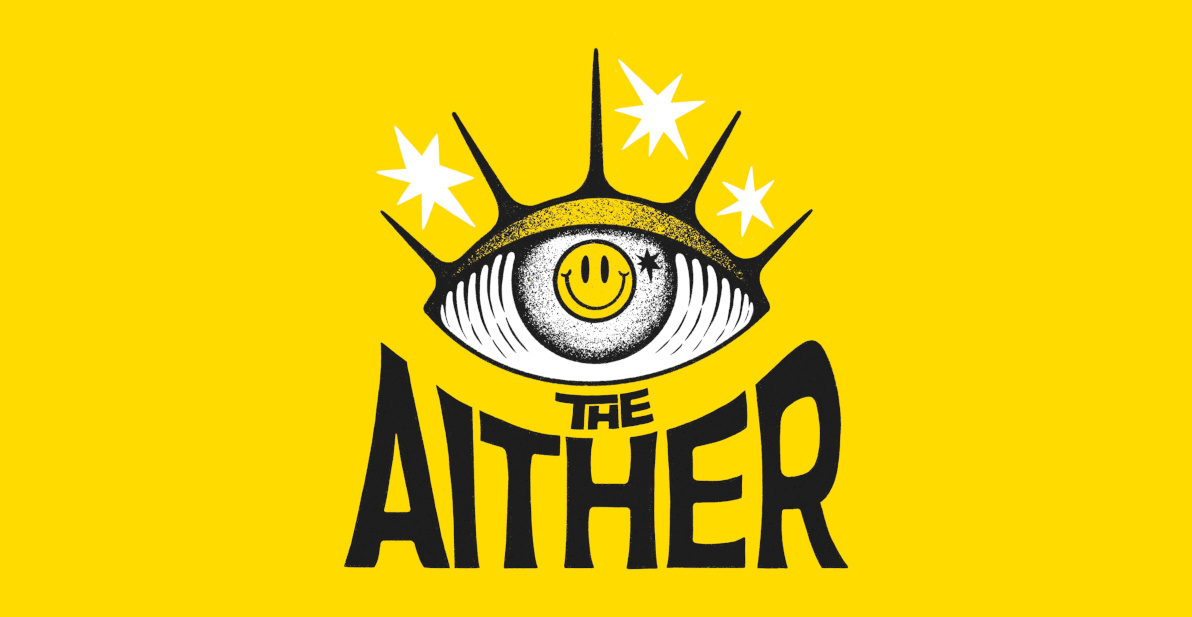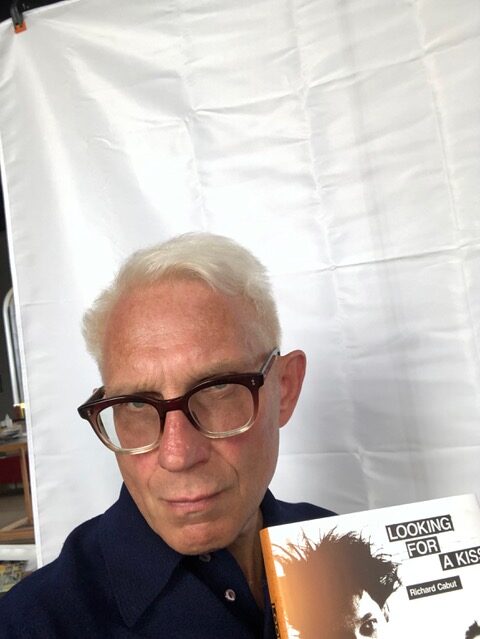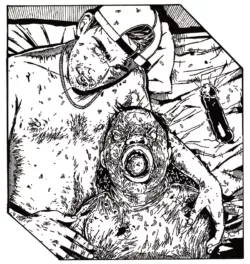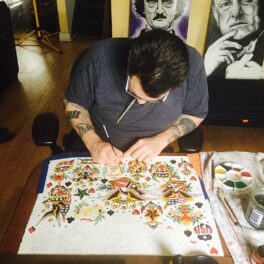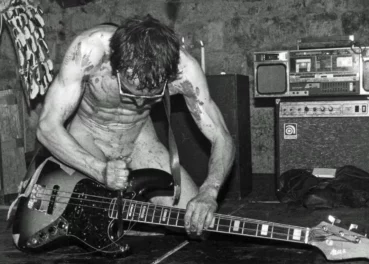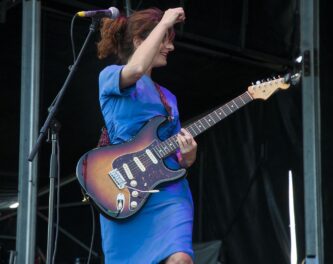Like many people involved in, and featured here at The Aither; English Author and Musician Richard Cabut’s life was forever changed by punk. It’s music, culture, spirit, and attitude.
Born in 1960, roughly 30 miles from England’s capital London; Richard was lucky enough to experience the very birth of punk (or at least the UK’s first version) as a teen. Going on as a young adult in the 1980s to write various fanzines, live the squat life, and play in the band Brigandage. With Richard gaining his first mainstream writing experience for much lauded publication the New Musical Express (NME). Covering the life he was living – namely the emergence of punks’ 2nd wave.
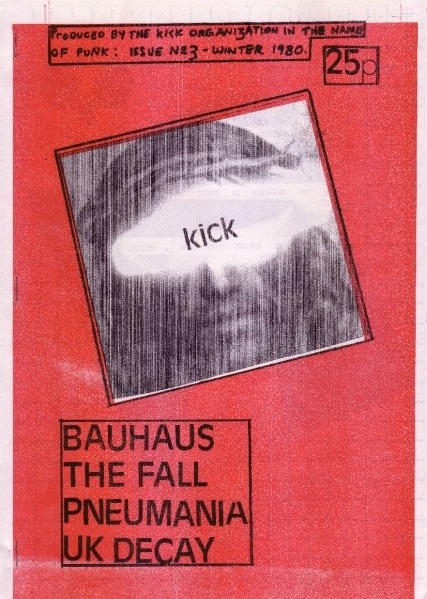
After some time living the corporate life; Richard returned with aplomb to writing roughly 10 years ago. Having released the books ‘Disorderly Magic and Other Disturbances’ (2023, Far West Press,), ‘Looking for a Kiss’ (2020, Sweat Drenched Press); which is being adapted for the screen; the novella Dark Entries’ (2019, Cold Lips Press) and collaborated with Andrew Gallix on ‘Punk Is Dead: Modernity Killed Every Night’ (2017, Zer0 Books).
To name but a few of Richard’s many recent accomplishments with the pen!
Wanting to learn more about the man, we sent Richard some questions to answer over email.
Check it out, below…
Getting Acquainted
Name and date of birth?
Richard John Cabut. 29 March 1960.
I also have a Polish passport (I was born in the UK but come from a Polish background) which says: Ryszard Jan Cabut. I like the dual nationality thing; best and worst of both/all worlds. The Polish name sounds more romantic, maybe.
Perhaps I should change my writing name to that?
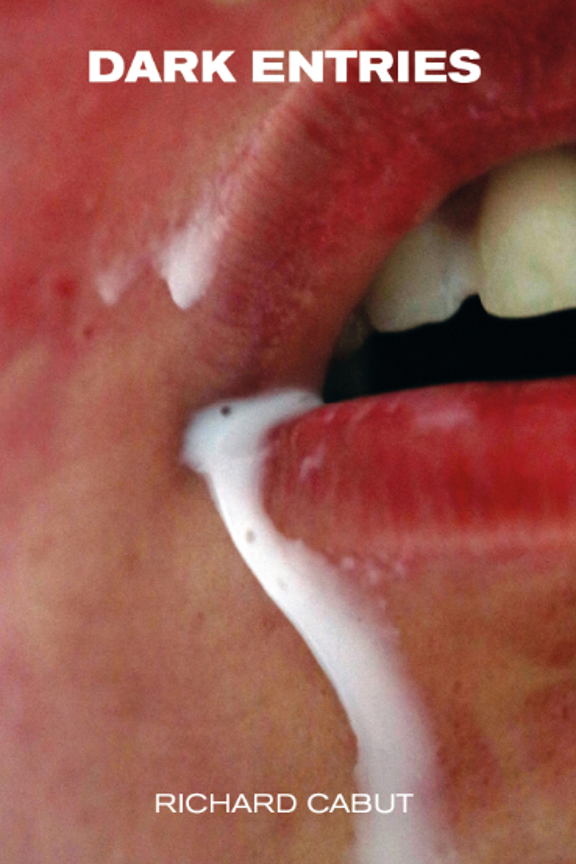
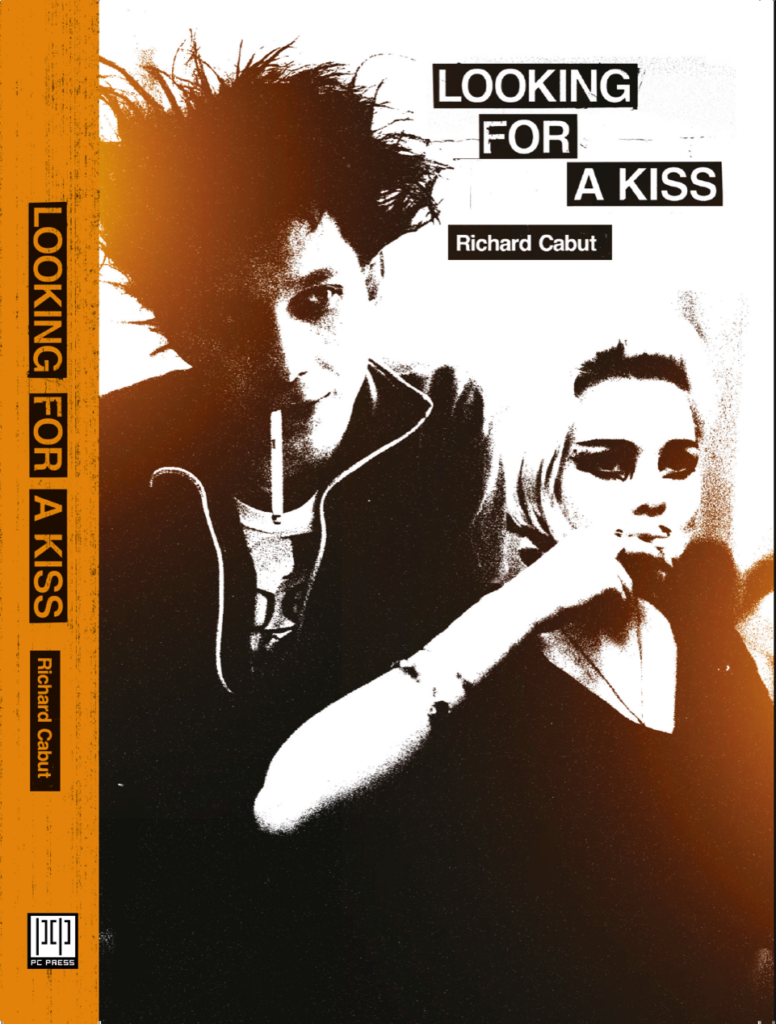
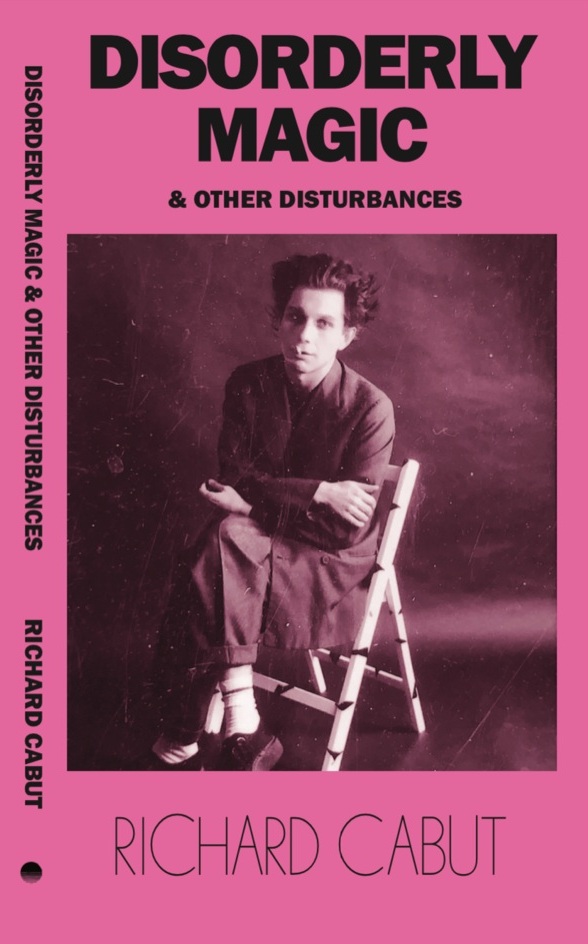
City, state, and country you currently call home?
I live in London. And have done since 1978.
First in the wilds of North London – Tufnell Park, Muswell Hill, Old Street, West Hampstead, Camden etc.
But since the mid 80s, in the sunny promised land of South East London – Camberwell, New Cross, and now Honor Oak Park. It’s OK. Not too busy. But close enough to culture and kicks. There’s a community feel, too.
City, state, and country you are from?
I lived in smalltown, working/lower-middle class suburbia. Dunstable, Bedfordshire, UK. Thirty miles from the capital.
Mostly I dreamt of escape. Here, kids left school and went on the track, the production line, at the local factory, Vauxhall Motors. If you managed to get some qualifications you could join the civil service.
Kids went out with each other, holding hands in the lunch hour, and watching telly round each other’s house every night, not saying a word. A preparation for marriage, essentially.
I didn’t know what I wanted, but I knew I didn’t want any of this shit ever.
To help us to get to know you – Please share a memory, or two, or even more if you wish; from the stages of your life noted below:
* Your childhood:
My old house in Dunstable. When I cleared it out after my parents – latterly my mother – had died.
I went into the room which was the scene of my earliest or first memory – I am a baby in my cot, in the daytime, alone in the room and I look around and a fly buzzes above me. And I cry for my mother. I cry. And she doesn’t come.
It happened in my parents’ bedroom.
This was the last room that I went into before I finally locked up the house and left for home – my current home in south London – for the last time.
So the scene of my first memory was the scene of the last memory of the house, and of one compartment of my childhood. And what I wanted back at the beginning – my mother – is exactly what I desired at the end.
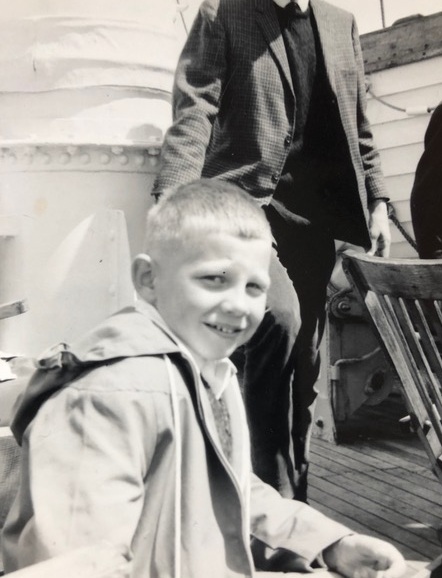
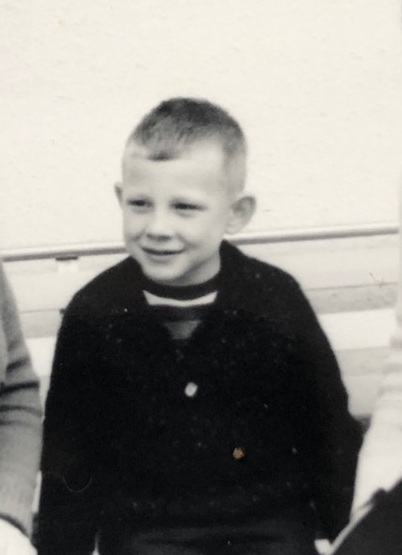
* Your teenage years:
In my Dunstable bedroom there’s Mark Perry’s fanzine ‘Sniffin’ Glue and Other Self Defence Habits‘ (July ’77), some Aleister Crowley, a bit of Sartre, the fanzine ‘48 Thrills‘ (bought off writer Adrian at a Clash gig), Sandy Roberton’s mag ‘White Stuff‘ (from Compendium in Camden) and John Peel on the radio, of course.
And tons of records – I love the smell of fresh new punk vinyl, as well the slightly different scent of Jamaican imports (pressed on old recycled vinyl, because of cheapness rather than eco awareness) – all of it a shining, odorous promise of unexpected imaginings.
It smells of the future.
The intensity of sitting in a loud room in a silent town, full of electricity. Floating above circumstances. Soaring…
… and flicking V-signs during the Jubilee itself, while nicking Union flags from wherever they can be found (everywhere), and invariably hanging out in the ladies (à la the Roxy Club) – although this has repercussions.
And everyone is still into funk, too: the California Ballroom is Dunstable’s equivalent of the more famous clubs the Lacy Lady or Global Village. Since ‘75 or so, hip kids had been travelling from miles around (even from London) for the plastic sandals and pegs scene there. It was all quite retro – 40s swing fashions – until punk.
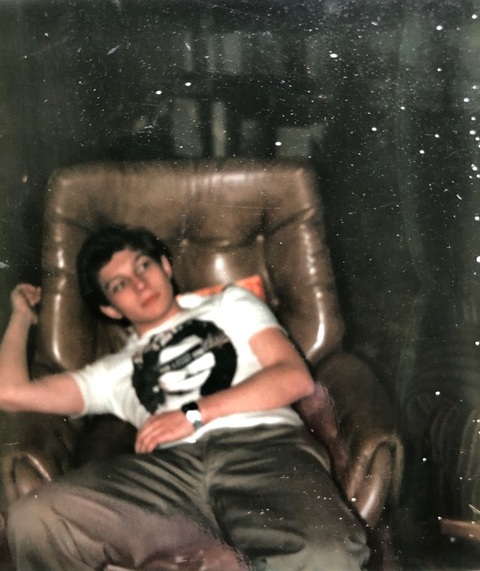
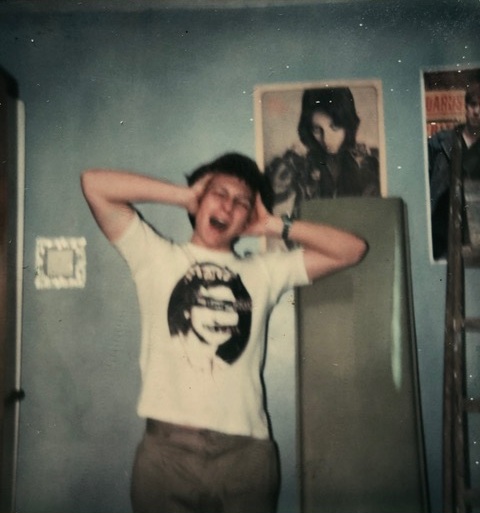
* Your 20s:
I started writing for the NME towards the end of 1982. Age 22. This was probably one of the reasons why the fifth edition of my fanzine, ‘Kick,’ was never printed, although I had already put together much of that issue.
Echoing the 1960s/70s exodus of writers from the underground press to the mainstream, I jumped on the music press bandwagon, as did many of the main punk fanzine writers.
Why? The consensus amongst ourselves was that we had ‘sold out’ in order to further push ‘our’ bands and ‘the revolution’.
We felt that we were, with our undying passion for punk, attacking orthodoxy and challenging those in power, sometimes in volatile ways.
We thought we were encouraging the overground music press to tackle concerns that they would otherwise have ignored – for instance, I wrote about the Black Sheep Housing Co-op, which grew out of the squatting movement in Islington (I was a member).
But we also revelled in the attention and status that an NME by-line attracted and afforded.
I remember the moment I decided I would try to join the NME, during a conversation with my friend Tony about the merits of some LP. Tony, who had already taken the IPC shilling, countered my no-doubt excellent argument with, ‘Pah, you don’t write for the NME’. I soon did – Tony was to blame.
Despite the fact that we had all sniped at the NME in our fanzines, we regarded it, in truth, with no little respect.
I wrote the infamous – according to some – positive punk article; featuring Bob Short’s Blood and Roses amongst others; for the NME in January-February 1983.
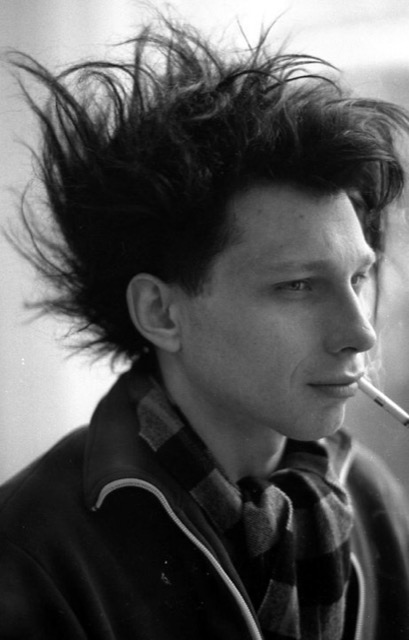
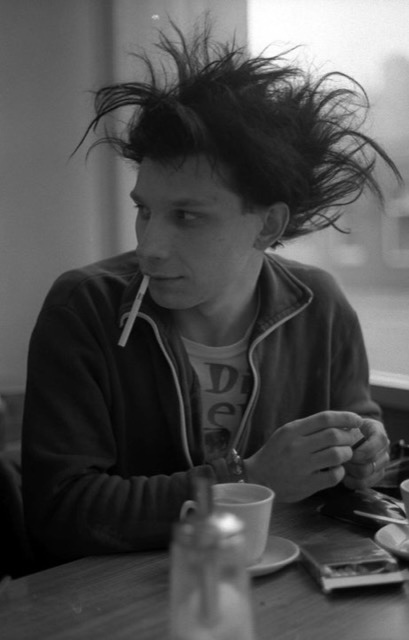
* Your 30s:
That would be the 90s.
I was having kids by then! And had started work at the BBC as a writer to pay for them.
I used to cycle from South East to West London, where the BBC was at that time (now largely up north). About 30 miles pedalling a day. So my main memory is of having punctures – trying to fix them on the side of some busy main road in the dark and rain.
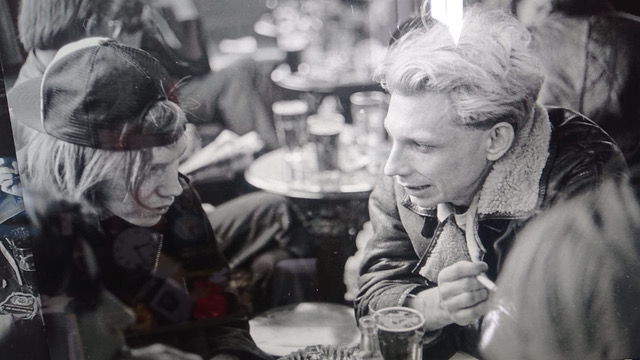
* Your 40s:
I think the main theme of my life is escape – escape from suburbia, from my Polish catholic childhood, from various cultural, professional and personal dead ends and cul-de-sacs.
My 40s were spent escaping the BBC and office life – I’m not really made for it. I got out by referring to an obscure BBC rule (the BBC are nothing if not a strict rule-based bureaucracy) to arrange a redundancy package.
My memory is that last walk out of the BBC doors.
Of course, after escape comes movement and new paths.
* Your 50s:
I started freelancing and flexing my creative muscles – poetry, playwrighting, a bit of ghostwriting (not too much), some journalism (national press rather than just music papers), some cultural criticism, books; nonfiction at first; and now, novels.
Some of my plays though were produced in the West End, and festivals, and I remember watching actors on a stage saying lines I’d written, and being amazed.
Choice reviews of my books stick in the mind, too.
* Your 60s so far:
I’m still in it for the adventure – artistic / intellectual, psychic, and physical. For instance, a bit of travel now and again is good for the soul. We launched both of my recent books, ‘Disorderly Magic‘ and ‘Looking for a Kiss,’ in the UK and in New York; and the sight of that city – those seemingly magical towers – as you cross the bridge onto the island of Manhattan is a lingering thrill and inspiration.
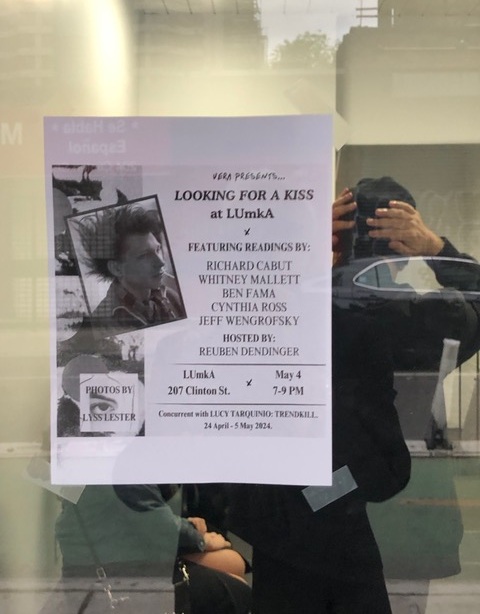
Personal motto(s)?
“Don’t worry about it.”
(a private joke).
Creativity Questions
When and why did you first become interested in music, writing, theatre, and everything creative?
… and any pivotal moments or influences?
Teenagedom: I’m in love with punk rock.
I’m in love with picking up momentum and hurling myself forward somewhere. Anywhere. Rip up the pieces and see where they land.
I am suburban punk Everykid in pins and zips, with a splattering of Jackson Pollock and a little Seditionaries – getting chased down the King’s Road, after bunking the train down to the Smoke, by (strangely) American rednecks rather than Teddy Boys, although that does happen, too (the rasta at the antiques market, Troy his name is, hands out cut-throat razors to harassed punks).
And wraparound shades worn after dark so that everything is but murk.
I write my first fanzine, ‘Corrugated Boredom’ (which later becomes ‘Kick‘), pondering pretentiously on Dada and Surrealism, and penning bad poetry – Hey, luckily, I still have some around. Here’s one:
“You live in a coffin/You can’t move/You’re buried alive/You’ve done it to yourself /What can you do?/Before, you wanted life/Now you just want existence.“
Which I actually read out live. You get the picture.
I also bash away on an old four-string acoustic guitar and write crappy, clichéd songs. I remember one:
“Blades for flowers/drainpipes for jeans/hippies are dead/And they’ll never return/ 67 reversed has destroyed that dream.”
Written in the summer of ’76, after seeing Dr Feelgood (mid-set Captain Sensible crept up behind Lee Brilleaux and gave him a mighty two-handed shove into the audience. What a wag). But is obviously inspired by the Pistols, whose gig at the nearby Leighton Buzzard Bossard Hall is unfortunately banned on the very afternoon of the night I turn up to see them.
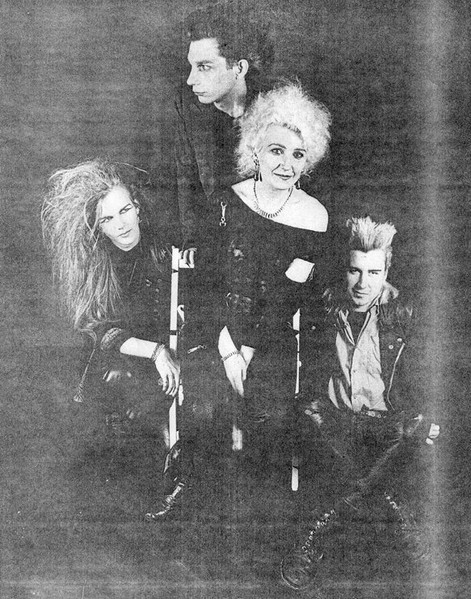

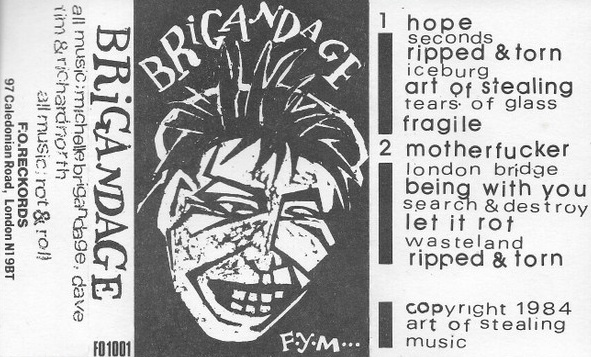
If you had to explain your creative endeavours to some recently crash-landed aliens…
What would you tell them?
My last/current two books are, firstly, ‘Disorderly Magic and Other Disturbances.’ On release, the book went in at number one with a bullet in the (major) distributor’s worldwide poetry chart.
‘Disorderly Magic and Other Disturbances’ is post-punk, dark jazz, beat-up, modern literature. It is a pop meditation on: speed, delirium and pop/art (distance), disillusion, madness, dissolution, memory, mourning, forgetting, hauntology, hauntings, the non-existent, and conjuring the future. Featuring a graveyard of myths, Chelsea Girls, blithe spirits, Post-Modernity killed every night, tower block chic, corrugated iron streets, concrete rhythms.
Also, high pop sensibility, a brazier of charms in city rubble, dusk with sparks, ghosts sitting in seats, anxious looks of cognoscenti, instant nostalgia, street-level mysticism, uptown and downtown, here’s to the friends of the underground, stains on glass, an accumulation of spectacles, the Aylesbury and the White City Estate (circa 80s), brigands, hustlers, creatures of business, looking for the grand gesture. Disorderly magic for ever!
The other current book is the novel ‘Looking for a Kiss.’ An 80s beat Freudian fairy tale – bad weather in the English soul.
Set in London and New York, the book is a fabulous chronicle of speed, madness and flying saucers (Warhol/Edie Sedgwick reference) – acid, pop art, teenage perversity (Patti Smith reference), the nature of melancholy, breakdown, breakup and breakout, the Spectacle, clairvoyance, personality crises, primal scenes, screams and schemes, the eternal quest for sprezzatura and the endless search for redemption.
And much more.
Who are some of your favourite writers, artists, filmmakers, and musicians?
… and what is it about their works that so inspire and move you?
These are some of my favourite books read or re-read in 2024. In no particular order :
‘Lonesome Traveller’ – Jack Kerouac.
‘Quant by Quant’ – Mary Quant
‘Erotic Vagrants’ – Roger Lewis
‘Zona’ – Geoff Dyer
‘A Child of the Jago’ – Arthur Morrison
‘Jack’s Book’ – Barry Gifford
‘The Takeover’ – Muriel Spark
‘The Company She Keeps’ – Mary McCarthy
‘A Confederate General in Big Sur’ – Richard Brautigan
‘Wild Twin’ – Jeff Young
‘Fassbinder:A Thousand Mirrors’ – Ian Penman
‘Lip Hook’ – David Hine
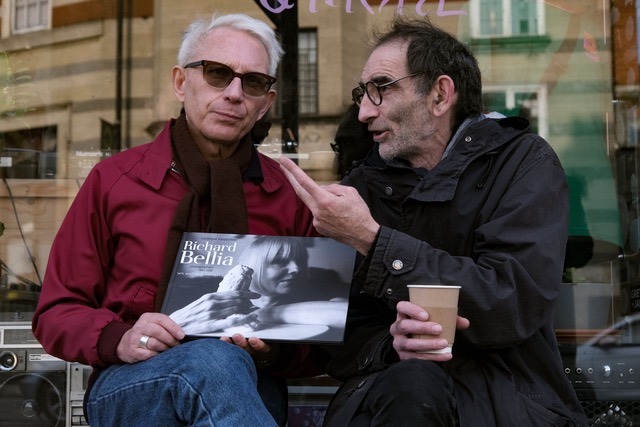
If people wanted to check out your stuff, work with you, or buy some of your wares – Where should they visit and how should they get in touch?
My website is richardcabut.com
Info about how and where to order books etc etc : https://linktr.ee/richardcabut
Any news, upcoming projects, or releases to share?
There’ll a brand new book published in July 2025 by Far West Press.
We’ll launch it in the US and UK.
There’s also a very special audio version of ‘Disorderly Magic’ released next May.
And one of ‘Looking for a Kiss’ is planned, too.
The film of ‘Looking for a Kiss’ – coming sometime maybe…
Details of/announcements for everything next year.
Odds & Ends
What role did toys play in your childhood?
… and any favourites you remember?
I liked books mostly.
At a very early age I remember dwelling on picture books, picking apart the drift. And flicking through novels which I was too young to read but whose secrets I was impatient to unlock.
I remember pretending that I could read them to impress my mum. I’m sure there’s some sort of psychological take on this.
If you could live in any place, during any historical era – When and where would that be?
… and why would you choose that time and place?
Eastern Poland after the First World War, the small villages in the borderlands, to see how my relatives and ancestors lived. And died, I guess.
The idea of continuity…
What are the top 3 items you own?
… and what is it about each of them that you so love?
My yoga mat and boxing gloves, and a couple of bikes.
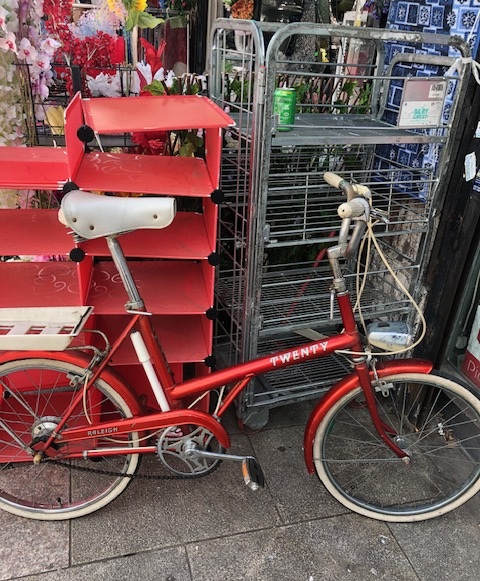
A tarot pack or two.
I use the Aquarian and Thoth packs daily. You have to keep an eye on the future, no?
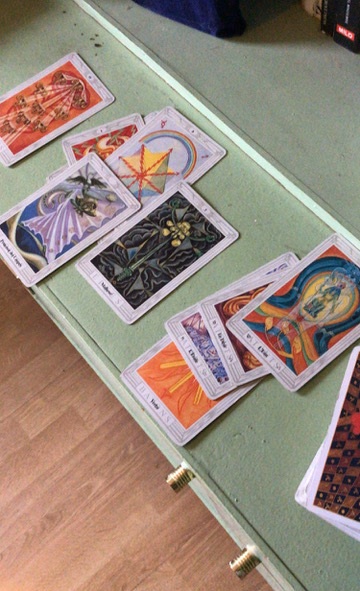
My original 1970s orange and white Luton Town FC scarf, a bit moth eaten now.
My first black and white Luton scarf was stolen by trophy hunting Birmingham FC hard nuts earlier in the 70s.

My original 70s ‘Anarchy in the UK’ poster – it’s been up in every house I’ve ever lived in, somehow surviving even the crazy squats.
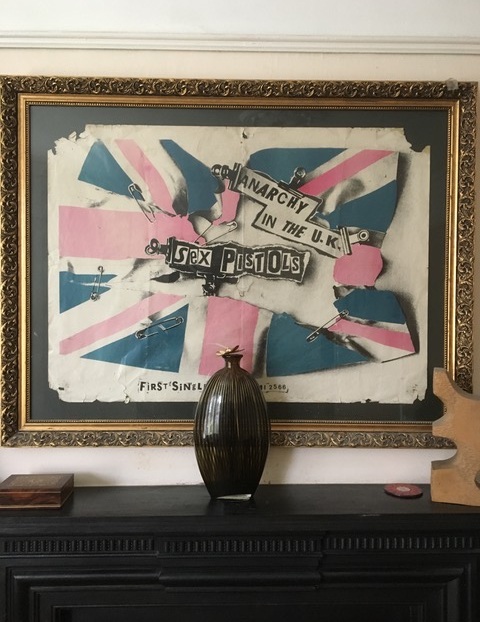
If you had to sum up your home-country, England, in one object – What would it be?
Why did you choose it?
… and how does it represent England to you?
A house.
Maybe my house.
A little knocked around, but still a little cool.
Anyway, it’s home, and all that entails.
Please describe your last dream in detail…
It would have been an anxiety dream. … relating to complex anxiety issues possibly arising from generational trauma (Polish background involving ethnic cleansing – see relevant poems/pieces in ‘Disorderly Magic’) prompting a need for the occasional half a 3.75mg of Zopiclone (close relative to Ambien) at night and a bit of psychic consultation now and then; holding on to scattered fragments of thinking about belief and faith – tarot, I Ching, chakra activation, yoga practices for concentrating the mind, body etc.
Hopefully triggering at least nodding terms understanding that belief is not just a utilitarian function. All part of the method of defeating said anxiety via (the fleeting illusion, perhaps) of capable control.
A kind of psychic pre-ordering of an easier life, if you like.
What does God mean to you?
I think the blind universe, which runs on pure chance and loaded dice, doesn’t give a shit, and nothing but nothing will exist until you yourself create it.
But, and this is a big but, the act, process and function of belief and devotion found within religion is important.
Hence my very faint interest in: the symbolism and use of magical processes (sigils etc.); applauding the foggy notion of spiritual precociousness as a brash and audacious refusal to give in to the state of the world or the universal situation; regressive hypnosis (maybe one day, could be fun); refusing to look for short cuts or consolations; blithely dismissing ‘scientific rules’ as ‘statistical approximations’; applauding the very idea of devotion but flaking on the practice; irregular prayer at the church of the poisoned mind, as it were – With the idea in mind of gathering resources to stare at what is fairly terrible without too much anguish or artifice.
Of everything you have done so far, what would you most like to be remembered for?
Love and tenacity.
Links
- Richard Cabut – Website
- Richard Cabut – Instagram
- Richard Cabut – Facebook (author page)
- Richard Cabut – Facebook (personal)
- Richard Cabut – twitter
- Richard Cabut – YouTube
- Richard Cabut – BandCamp
- Richard Cabut – GoodReads Entry
- Richard Cabut / Richard North – Discogs Entry
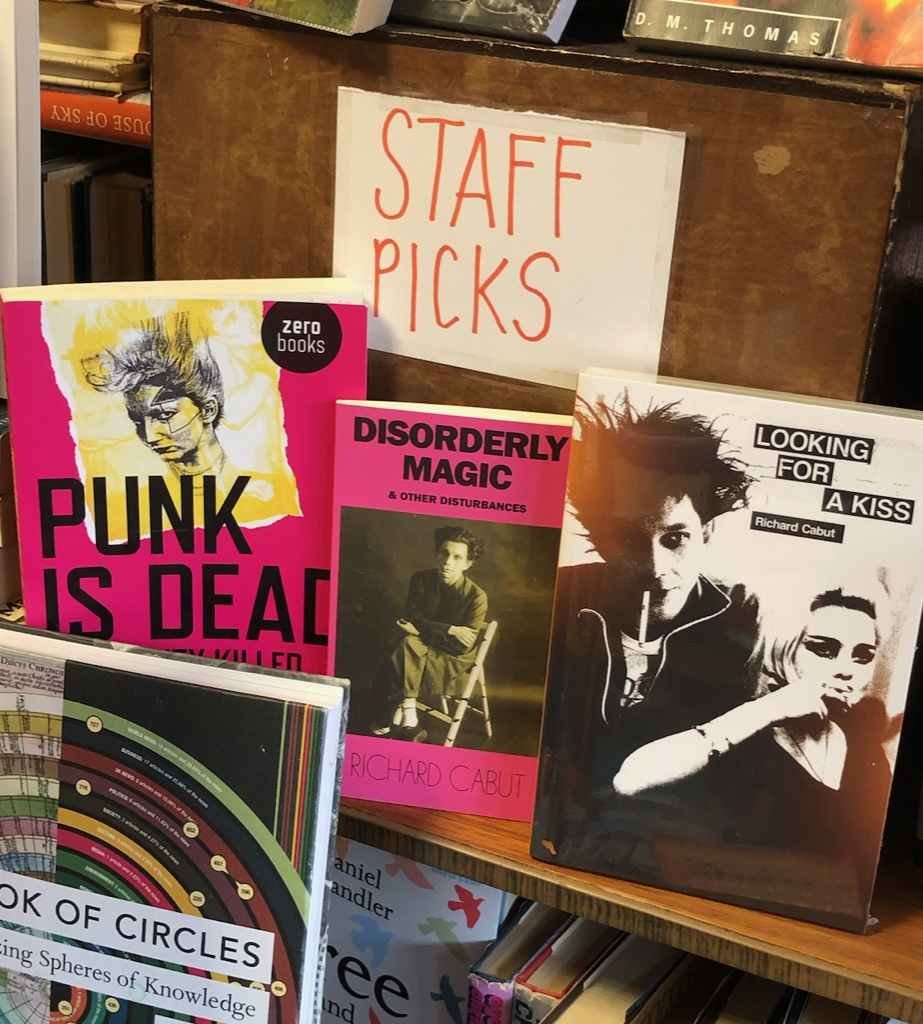
All images supplied by Richard or sourced online.
